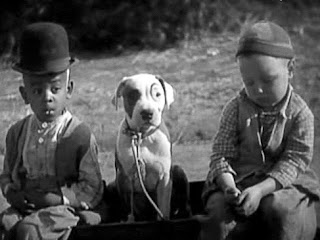When I was in training at The New York Hospital-Cornell Medical Center, the gleaming palatial hospital on the chic upper East Side of Manhattan, I was well aware that there had been 30 applicants for every internship spot in this program. Most of the interns selected had graduated from Ivy League medical schools and we were constantly told how fortunate we were to be trained by famous, exalted faculty like Fred Plum, chairman of Neurology and author of the standard textbook on coma, and Charles Christian, chief of Rheumatology, and Maria New, the endocrinologist who described the biochemical basis for an important adrenal disorder and Thomas Killip who invented the cardiac care unit and who did important work in congestive heart failure.. Before them, a parade of faculty had written their textbooks at Cornell, Edward Hook in Infectious disease, author of a famous textbook, Graham Jeffries,who wrote the basic textbook in gastroenterology and then these luminaries were plucked off by other institutions where they became the chairman of departments of medicine.
The stellar faculty, presumably, attracted stellar interns and residents (housestaff), maybe some of them even dreamed of being launched into stellar careers by these faculty mavens.
So, to be at THE New York Hospital was an honor, a status conveyed by that elusive thing called "prestige." If you were wearing the white uniform bearing the blue New York Hospital logos, you were among the elite. It was like playing for the New York Yankees.
But when I found myself in the emergency room, admitting some CEO of some Wall Street firm who had vomited stomach blood all over himself after a drinking binge, and was now busily passing malodorous maroon stools, I began the note I had to write in the medical chart with the standard, "It is an honor and a privilege to be allowed to participate in the care of this patient..."
Not infrequently that scene from David Lean's movie "Dr. Zhivago" floated up in my mind where Zhivago visits the apartment of a woman who is the lover of a very important Moscow businessman and heavy hitter who has swallowed poison in a suicide attempt and Zhivago's professor of medicine has been called to see this woman, summoned from a party at Zhivago's house. As they drop the tube to drain the poison from her stomach, the professor looks across the bed at Zhivago and says, "This is the practice of medicine. Nothing too heroic or inspiring. Medical practice in the real world: It stinks."
Had I been doing the same thing four miles down First Avenue at Bellvue Hospital for the indigent, I would have likely become depressed and I would have wondered why I had worked so hard in college to get into a good medical school, if the actual practice of medicine was so banal, repulsive and discouraging. Street people wandered the halls of Bellvue and some even lived in the tunnels underneath the hospital. But doing the same thing with my highly select colleagues at the Great White Tower, this was heroic; this was, in some sense, an honor and a privilege.
Now, with the perspective of age, I can see what was going on in my head was what the Germans call "koftkino" which roughly translates into "head cinema."
The movie running in my brain was I was part of some elite group, a strike force. This was before any TV shows like "ER" or "Scrubs" or anything beyond soap opera depictions of doctors. MASH had just come out, the first movie to suggest doctors could be randy or irreverent.
But I don't think medical school is unique. I suspect college and the whole elite college thing is more of the same, and the "Varsity Blues" scandal of parents buying places in "elite" colleges for their offspring through the expedient of paying coaches to "recruit" their kids for teams. And to the parents, it must have all seemed just playing the system: After all, it's perfectly legal and ethical for David Koch to contribute $10 million to Harvard just before his daughter applies. So what's so different, if you don't have $10 million but you do have $40K to buy a place for your kid?
What I really liked was the remarks made by one of the daughters whose father had bought her a place at USC or UCLA or somewhere saying she really didn't think she would go to class or do assignments; she was more looking forward to going to football games in big stadiums and to fraternity parties. So that was the cinema in her head.
And I have to say, looking back, for me and for most of my classmates, I cannot see that college was transformative beyond giving me a chance to simply re invent myself and become a grind and a nerd which is what was required for getting into medical school.
But it was not a case of meeting the sons and daughters of important people who then opened up opportunities for me to enter the upper class, leaping up from my ordinary and middle class origins.
Don't get me wrong: I'm grateful for that 4 years of focusing on myself and my own interests and development, and it was salutatory to have professors who actually knew their own fields thoroughly, unlike my high school teachers who were only a chapter or a page ahead of their students in the textbook.
But do these colleges make any real difference in the trajectory of the lives of the vast majority of students who attend them?
Doubtful.




No comments:
Post a Comment